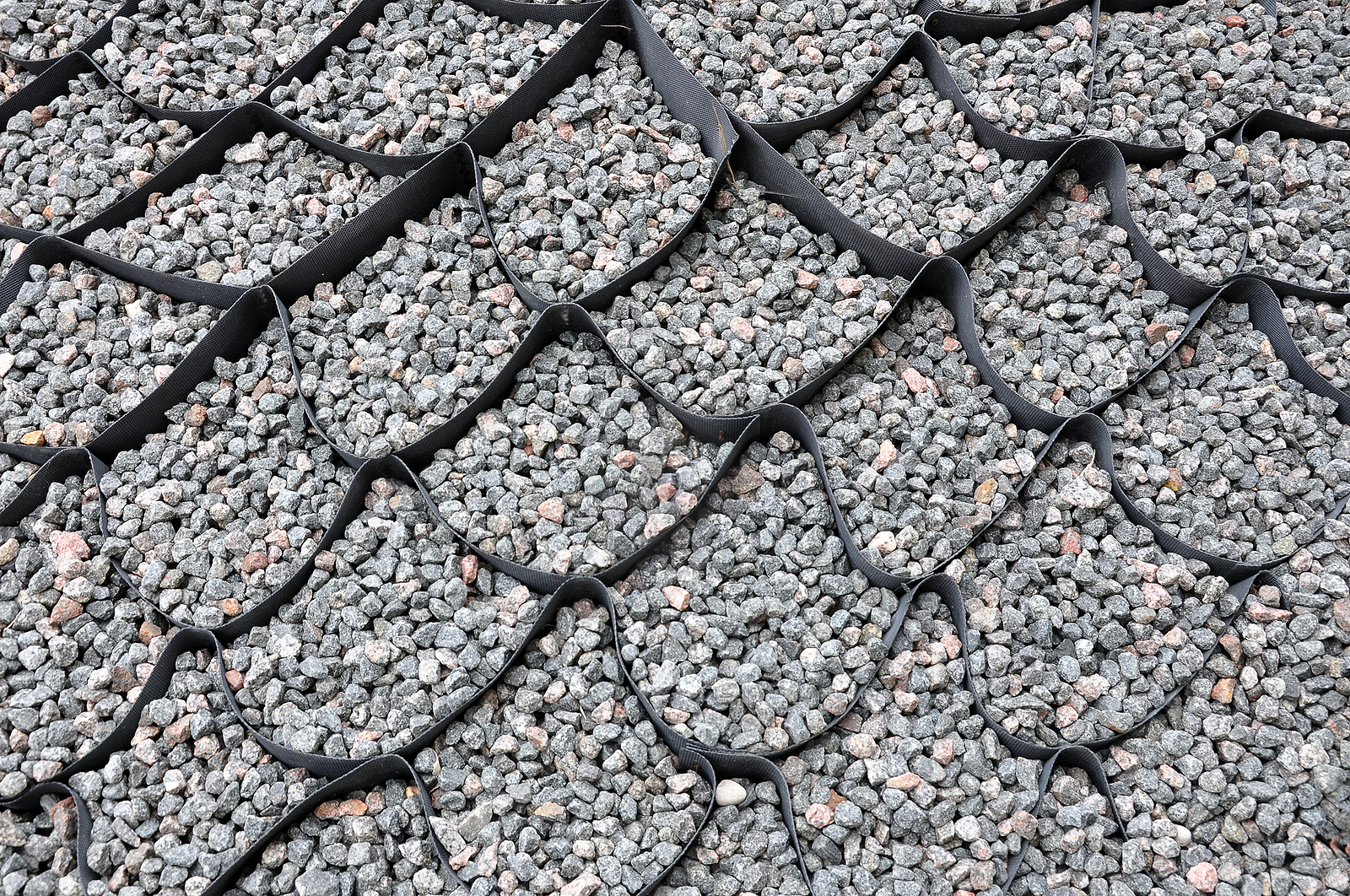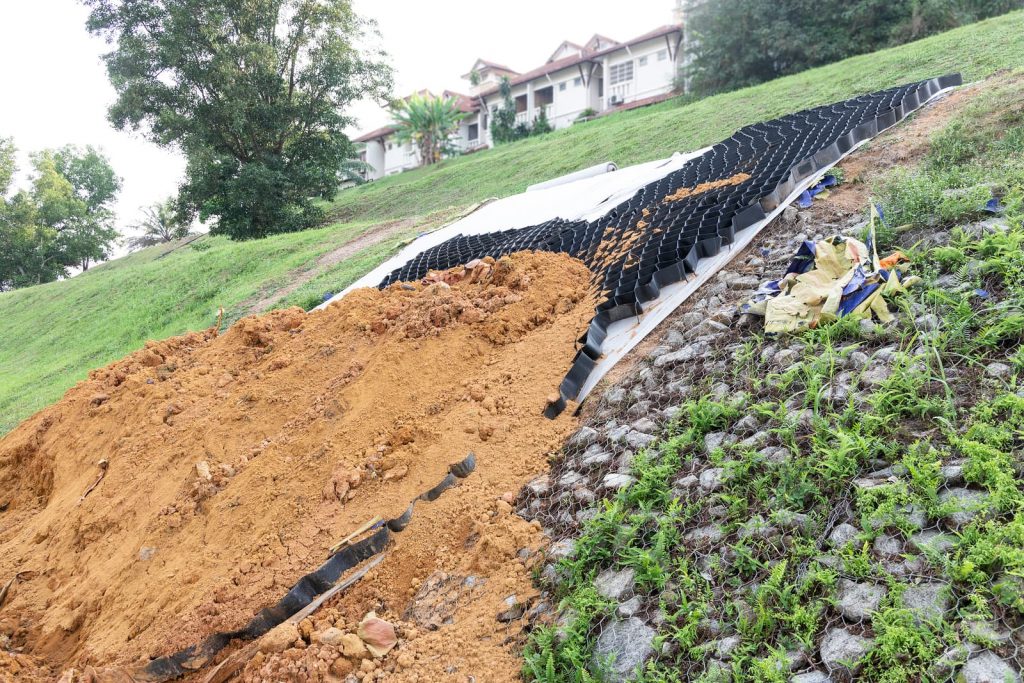
Privacy statement: Your privacy is very important to Us. Our company promises not to disclose your personal information to any external company with out your explicit permission.

On job sites around the world, contractors and engineers rely on cellular confinement systems for a variety of applications. Cellular confinement systems or geocells are honeycomb-like structures that contain, confine and reinforce a variety of fill materials. They are utilized for soil stabilization, slope erosion control, channel wall protection, as well as retaining walls. Cellular confinement systems offer a cost-effective solution for some of the biggest problems in construction and engineering.
Soil stability is a common issue to consider during construction projects across several industries. Soft, unstable soil can not support the heavy equipment used on these projects and diminishes the structural integrity of whatever is being built. For example, during road construction engineers often build over unstable soil with thick structures like reinforced concrete. While this offers the soil stability required for the project, it can harm the environment and take a large chunk out of the project`s budget. Fortunately, cellular confinement systems offer a solution to both of these problems.
By creating a foundation with geocells and filling them with materials, you create a permeable structure to stabilize the soil. Since on-site or other inexpensive materials can be used to fill the geocells, the project becomes more cost-effective. Rather than stabilizing the earth with a non-porous material, cellular confinement systems allow water to permeate the ground and prevent runoff. This helps circumvent a myriad of environmental issues and causes minimal damage to local ecosystems.

When working on sloped terrain, erosion control is always a central concern. When the soil starts to erode, the structural integrity of the ground weakens, creating an unsafe foundation to work on. Cellular confinement systems are often utilized to reinforce the foundation. These systems solidify a job site`s foundation promoting vegetative growth, which further reinforces the soil. With this added strength to the foundation, slopes with angles up to 70° can resist erosion.
On so many construction sites, rough terrain and slopes create the need for retaining wall structures. Changes in elevation and uneven terrain create problems for construction projects that require flat, graded land. Retaining walls allow the land to be graded and secured from erosion or potential collapse. Sometimes steel-reinforced concrete walls are used to create retaining walls but that method is expensive, can harm the environment, and can potentially crack in high-stress situations. Cellular confinement systems are a cost-effective alternative for creating durable, eco-friendly, and flexible retaining walls. Vegetation can flourish through the permeable walls, increasing their structural integrity and aesthetics.
Channels are especially prone to erosion because of the constant flow of water. This erosion of soil particles causes them to enter the nearby waterway, increasing the turbidity of the water and harming local wildlife. In addition to environmental concerns, uncontrolled erosion on channel walls can compromise the integrity of the entire system and potentially cause it to fail. Channel walls must be flexible enough to adapt to tidal and seasonal changes, but stable enough to resist intense hydraulic stresses. Cellular confinement systems offer an effective solution. Supporting channel walls with these systems allows for a strong but flexible channel wall that can drain naturally.

Privacy statement: Your privacy is very important to Us. Our company promises not to disclose your personal information to any external company with out your explicit permission.

Fill in more information so that we can get in touch with you faster
Privacy statement: Your privacy is very important to Us. Our company promises not to disclose your personal information to any external company with out your explicit permission.